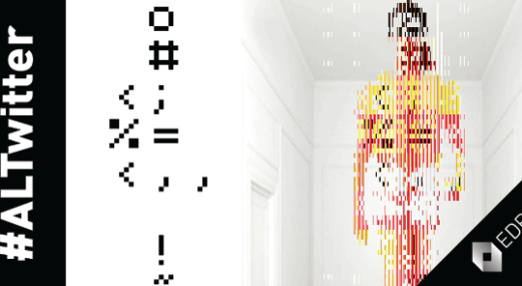Filter by...
-

#ALTwitter privacy revelation: European parliamentarian goes bananas
Recently, Mr Dunston (of the “Dunston Checks In” fame) came to the EDRi Brussels office looking for help. He complained that somebody from the European Parliament is messing up with his “holy banana collection” that he has been preserving since decades after he inherited it from his forefathers. Other than that we had no information.
Read more
-

ALTwitter: The treasure trove behind 140 characters
One of the main reasons why metadata is used broadly for surveillance and targeted advertisement is its extensive capability to capture more dimensions of useful information than the data itself. An ordinary internet user fails to see the mysterious nature of metadata because it is invisible to the naked eye. Law enforcement agencies and advertisers, on […]
Read more
-

ALTwitter – profiling with metadata
When we are sharing links, events or ideas through social media, we leave behind a trace of metadata: when and how often, which days of the week, in which language, using which hashtag, linking to which users or websites, and so on. Those details might not say much when we look at each piece of […]
Read more
-
Commission responds to Ombudsman investigation on EU Internet Forum
In April 2016, the European Ombudsman launched an investigation into the European Commission’s failure to disclose information of the “EU Internet Forum”. The EU Internet Forum brings together US internet companies (Microsoft, Facebook, Twitter, Google), government officials, and law enforcement agencies to discuss how to reduce the accessibility of undefined “terrorist material” and badly defined […]
Read more
-

Three steps to end freedom of expression
Our right to freedom of expression is laid out in law by the EU Treaties. To ensure democracy and accountability, this fundamental human right may not be restricted unless it is necessary, achieves an objective of general interest and the measure to restrict it is provided for by law.
Read more
-

Guide to the Code of Conduct on Hate Speech
On 31 May, the European Commission, together with Facebook, YouTube (Google), Twitter and Microsoft, agreed a “code of conduct” (pdf) on fighting hate speech. We believe that the code of conduct will damage enforcement of laws on hate speech, and undermine citizens’ fundamental rights. In a joint press release, EDRi and Access Now have therefore […]
Read more
-

2015 Internet Report on Turkey released
The Alternative Informatics Association released its yearly report about the Internet in Turkey. Entitled “State of the Art Report of the Internet in Turkey – 2015,” the report is dedicated to the memory of Özgür Uçkan, who passed away in 2015. He was a founding member of the AIA and a devoted defender of rights […]
Read more
-

Academics under attack in Turkey
1128 academics from Turkish universities signed an open letter urging the government to stop using curfews to facilitate the violence ongoing for weeks in Kurdish towns. The number of local signatories increased to 2212 by 20 January 2016, including 30 Nobel Prize winners. Moreover, the letter heading “We Will Not Be A Party To This […]
Read more
-

Turkey: New attempts to limit online access and freedom of speech
The Turkish government has been heavily critised for implementing censorship on the Internet and other media. Currently, over 100 000 websites are officially blocked in the country. Additionally, popular websites such as Twitter, Facebook and YouTube have been frequently blocked with or without a court order. Other than officially blocking websites, Turkish Internet Service Providers […]
Read more
-

A new wave of Internet blocking in Turkey
On 25 July, the Turkish government ordered the blocking of 65 popular dissident and Kurdish websites and temporarily slowed down Twitter and Facebook access. This follows the government’s air attack against the Islamic State (Isis) and Kurdish forces in Syria. A few days earlier, Twitter was blocked entirely for a few hours. On 20 July, […]
Read more
-

Turkish student sentenced for re-tweeting satirical news
A Turkish university student was sentenced for one year for re-tweeting a satirical article that appeared on “Zaytung”, a popular Turkish website which publishes false and satirical stories in a journalistic style. Meral Tutcali, a student in Anadolu University, was sentenced by the provincial court of Adana to one year in jail for “insulting a […]
Read more
-

Non-US Twitter accounts now subject to EU Data Protection rules
On 17 April 2015, Twitter revised its privacy policy, explaining that it will change the location of processing of the account information of users outside the United States. On its website Twitter announced that the services for non-US users are now provided by its subsidiary based in Dublin, Ireland. Therefore, these accounts will no more […]
Read more
